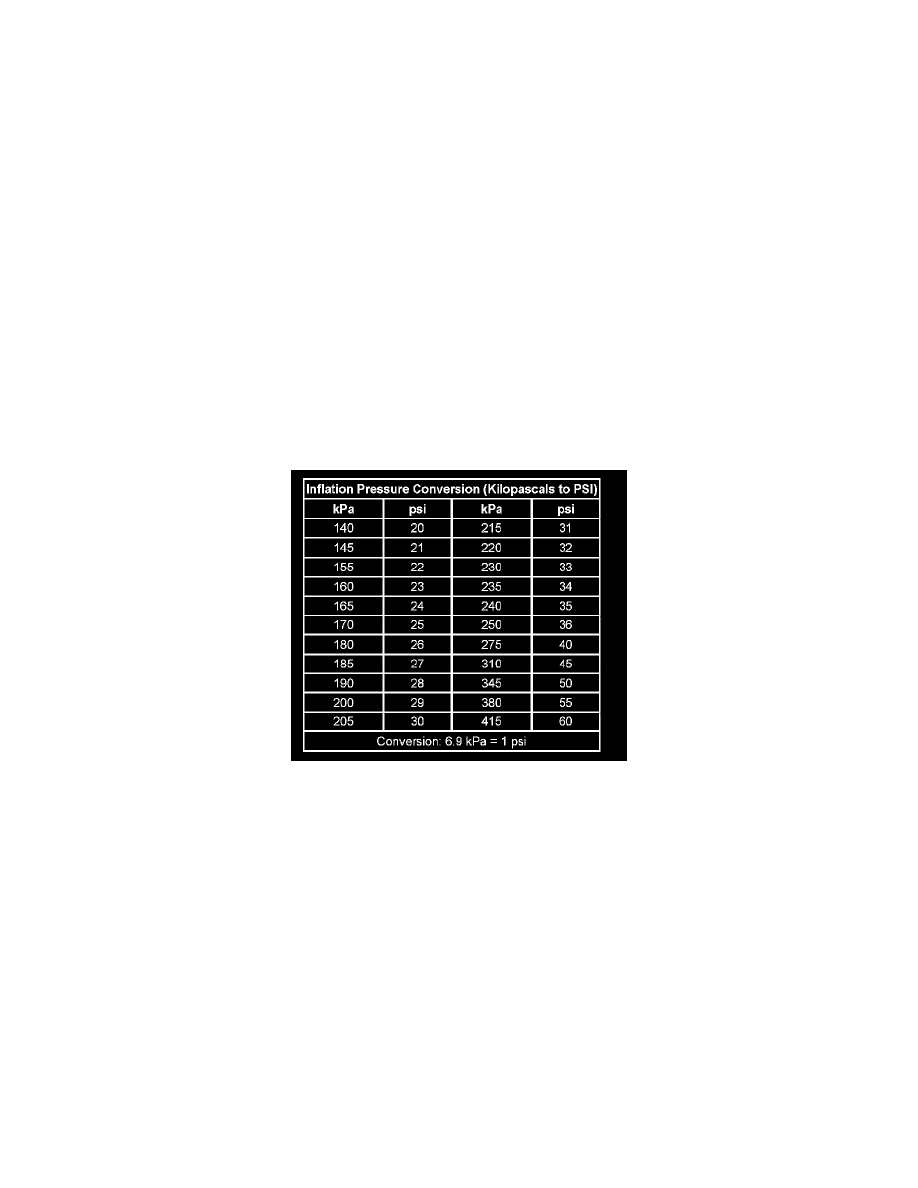LaCrosse V6-3.8L VIN 2 (2005)

Tires: Description and Operation
Tire Inflation Description
Tire Inflation Description
This vehicle is equipped with a Tire Pressure Monitoring System.
This vehicle has been engineered to operate up to the stated load capacity with wheel and tire assemblies of the type, size, construction, and
configuration as originally installed. Maintenance of the tire inflation pressures is critical to the continued satisfactory performance, handling, and
operating economy of the vehicle. Operation with incorrectly or improperly inflated tires can adversely affect vehicle performance and may contribute
to:
^
Vehicle handling concerns
^
Poor fuel economy
^
Shortened tire life
^
Tire overloading
Inspect the tire pressure when these conditions apply:
^
The vehicle has been sitting at least 3 hours.
^
The vehicle has not been driven for more than 1.6 km (1 miles).
^
The tires are cool.
Inspect the tires monthly or before any extended trip. Adjust the tire pressure to the specifications on the tire label. Install the valve caps or the
extensions on the valves. The caps or the extensions keep out dust and water.
The kilopascal (kPa) is the metric term for pressure. The tire pressure may be printed in both kilopascal (kPa) and psi. One psi equals 6.9 kPa.
Inflation Pressure Conversion (Kilopascals to PSI)
Tires with a higher than recommended pressure can cause these conditions:
^
A hard ride
^
Tire bruising
^
Rapid tread wear at the center of the tire
Tires with a lower than recommended pressure can cause these conditions:
^
A tire squeal on turns
^
Hard steering
^
Rapid wear and uneven wear on the edge of the tread
^
Tire rim bruises and tire rim rupture
^
Tire cord breakage
^
High tire temperatures
^
Reduced vehicle handling
^
High fuel consumption
^
Soft riding
Unequal pressure on the same axle can cause these conditions:
^
Uneven braking
^
Steering lead
^
Reduced vehicle handling
